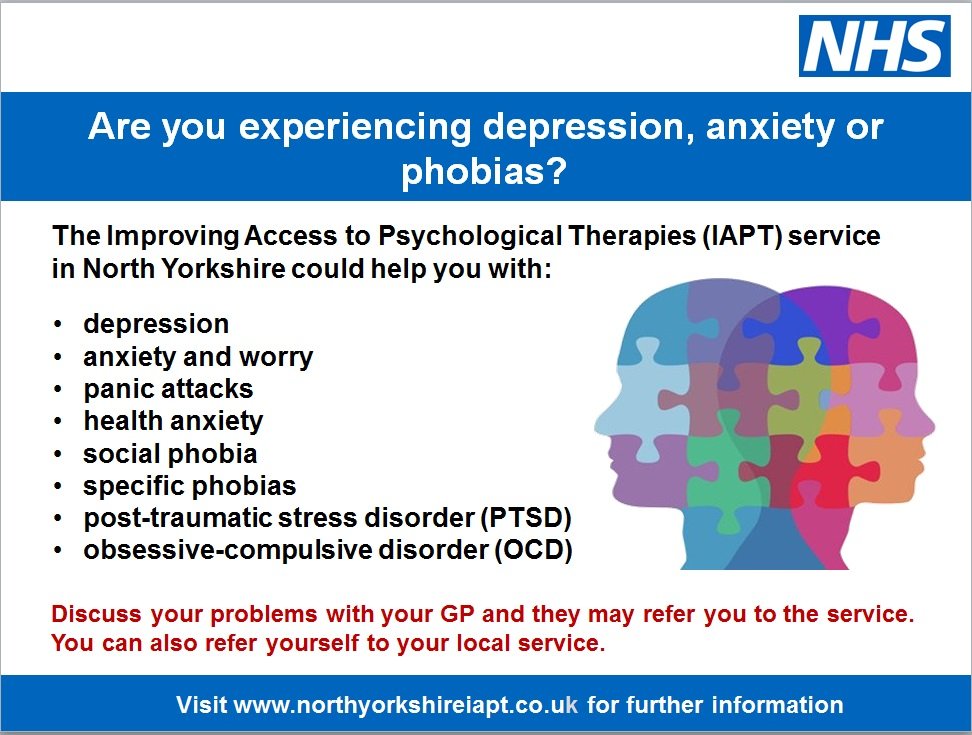Doctors share skin cancer expertise
Skin cancer
diagnoses in York and North Yorkshire were given a boost when GPs gathered to
learn more about technology that can help them identify potential skin cancers.
More than 40
family doctors from across NHS Vale of York and Scarborough and Ryedale Clinical
Commissioning Groups were shown how to take high-quality photographs of lesions
using regular cameras as well as dermatoscopes, sophisticated pieces of
equipment that can take detailed magnified pictures of moles and skin lesions.
Dermatoscopes
have been bought by York Against Cancer for all GP practices across the Vale of
York, and the charity also funded the dermatoscopy course held at York’s Marriott
Hotel during March.
Dermatoscopes
used in practices in Scarborough and parts of Ryedale have been funded by NHS
Scarborough and Ryedale CCG.
The course
was arranged as part of a quality improvement programme led by both Dr Andy
Muinonen-Martin, Consultant Dermatologist and York Trust Skin Cancer Lead, and
Dr Dan Cottingham, Macmillan GP Cancer and End of Life lead for the Vale of
York CCG. It was delivered alongside
fellow clinicians Dr Elizabeth Blakeway and Dr Angana Mitra.
The experts
showed GPs how to take three specific images of any doubtful lesion, from a
general overview to a close-up and a specialised dermatoscope image.
The
photographic procedure meets new guidance issued by the York Teaching Hospitals
NHS Trust so that GPs and hospital doctors can assess lesions and come to an
informed clinical decision about which patients need hospital appointments.
The GPs
learned how to use the photographs to familiarise themselves with different
types of skin cancer. The teaching also emphasised common benign diagnoses that
mimic skin cancer.
It’s hoped
the training will help reduce the number of people who have to attend hospital,
sparing many an anxious wait for further investigations. Those that do need to
be seen can then be sent more efficiently to the correct specialist the first
time.
“Our emphasis was on improving the quality of
the pictures that GPs take and increasing knowledge about using the
dermatoscopes and interpreting the images,” said Dr Cottingham. “The course was
a big success and we got lots of positive feedback.
“Thanks to
York Against Cancer for providing the funding for this event – we could not
have done it without them.”
Julie
Russell, general manager of York Against Cancer, attended the day. “It was
really informative and we hope it will help GPs get the best out of the
equipment we have funded,” she said.
Dr Peter
Billingsley, Associate Chair of NHS Scarborough and Ryedale CCG, said: “The use
of dermatoscopes in GP practices is transforming the way skin lesions are
investigated and, importantly, many patients no longer need to go through the
anxiety of a hospital wait.
“This was a fantastic course and I’m delighted
to many of my colleagues took the opportunity to attend.”
Complete online test to determine Type 2 diabetes risk
People in Scarborough and Ryedale and across the wider Yorkshire and Humber region are being encouraged to know their risk of developing Type 2 diabetes – by taking an online test, which takes just three minutes to complete.
Some 12.3 million people in the UK are at risk of developing Type 2 diabetes. If left untreated, diabetes can cause blindness, kidney failure, limb amputation, heart disease, stroke and even early death.
Identifying the risk of developing Type 2 diabetes as early as possible is crucial so people can make lifestyle changes sooner to lower their risk of developing the condition. Around three in five Type 2 diabetes cases can be prevented if people maintain a healthy weight, eat well and increase the amount of physical activity they do.
People living in Humber, Coast and Vale – a region including Hull and East Yorkshire, North Lincolnshire and North East Lincolnshire, Vale of York and Scarborough and Ryedale – are encouraged to visit www.diabetes.org.uk/risk to find out whether they are at risk of developing Type 2 diabetes.
Those people who are considered to be at risk of developing Type 2 diabetes should contact their GP surgery to find out whether they are eligible for the Healthier You: NHS Diabetes Prevention Programme – a free, personalised programme to encourage individuals to make small and achievable changes in order to live a healthier lifestyle.
Participants will receive support to reduce their risk of developing Type 2 diabetes in a number of ways. A dedicated health coach will support them to make positive changes to their diet and encourage them to be more physically active. As they progress on the programme, they will build on their dietary knowledge and their progress will be reviewed after six months and again at nine months.
Since its launch in July 2018, some 2,000 people across the Humber, Coast and Vale area have been referred to the Healthier You: NHS Diabetes Prevention Programme. Nationally, patients who have participated in the programme have lost an average of 3.6kg.
People aged 40 and over are also encouraged to get a free NHS Health Check to assess their risk of Type 2 diabetes, cardiovascular disease and other conditions.
While Type 2 diabetes is largely linked to lifestyle, some people are more likely to develop the condition if they have an immediate relative who has diabetes, or if they come from black and minority ethnic (BME) groups. In addition, the risk of developing Type 2 diabetes increases as a person gets older.
Diabetes Prevention Week, which takes place between 1 and 7 April, aims to raise awareness about Type 2 diabetes and increase knowledge about how to prevent the condition.
Alex Seale, Senior Responsible Officer for Diabetes at the Humber, Coast and Vale Health and Care Partnership, and Chief Operating Officer at North Lincolnshire Clinical Commissioning Group, said: “Tackling Type 2 diabetes is hugely important for the Humber, Coast and Vale Health and Care Partnership as we want everyone in our area to have the opportunities and support they need to stay healthy and age well.
“I would encourage people living in the Humber, Coast and Vale area to visit www.diabetes.org.uk/risk to find out their risk of developing Type 2 diabetes – it takes only a couple of minutes to complete the online test. People in at-risk groups are particularly encouraged to complete the test.
“If the test indicates a person is at risk of developing Type 2 diabetes they could be eligible for the Healthier You: NHS Diabetes Prevention Programme. So far, more than 250,000 people nationally who were on the cusp of developing Type 2 diabetes have been referred to classes which offer advice and support on food, diet and exercise.”
For more information about the Healthier You: NHS Diabetes Prevention Programme visit www.england.nhs.uk/ndpp.
Read MoreWork continues to improve mental health services for new and expectant mums
Published on Mar 7, 2019
Mental health services for new and expectant mums in Scarborough and Ryedale and other parts of the Humber and Yorkshire region are continuing to be developed courtesy of NHS funding worth hundreds of thousands of pounds.
Having secured a share of a £23 million nationwide investment announced by NHS England in 2018, the Humber, Coast and Vale Health and Care Partnership – a collaboration of 28 health and social care organisations – is working to deliver specialist community perinatal mental health services in Hull, East Riding of Yorkshire, North Lincolnshire, North East Lincolnshire, Scarborough and Ryedale, and the Vale of York.
The funding is part of a £365 million plan by NHS England to ensure 30,000 more women in all areas of England can access specialist perinatal services by 2021.
Perinatal mental health problems are those which occur during pregnancy or during the first year following the birth of a child. Perinatal mental illness affects one in five (20%) women, and covers a wide range of conditions. If left untreated, it can have significant and long lasting effects on the woman and her family.
Examples of perinatal mental health conditions include:
Moderate to severe postnatal depression
Anxiety disorders, including obsessive compulsive disorder and panic disorder
Eating disorders
Post-traumatic stress disorder
Severe mental illnesses including schizophrenia, schizoaffective disorder and bipolar affective disorder
Postpartum psychosis
Severe self-harm
Suicidal thoughts
Late last year, pre-existing perinatal services began to be developed further, while new ones were created to ensure women in all parts of the Humber, Coast and Vale area who experience complex mental health needs have access to treatments and support as early as possible. Providing support for families and signposting to relevant services has also been part of the service improvements.
Humber Teaching NHS Foundation Trust has strengthened its already established specialist community perinatal mental health services in Hull and East Riding of Yorkshire. The Trust is also working with NAViGO and Rotherham, Doncaster and South Humber NHS Foundation Trust to introduce a new service in North Lincolnshire and North East Lincolnshire.
Tees, Esk and Wear Valleys NHS Foundation Trust is also introducing new specialist community perinatal mental health services across the Vale of York and Scarborough and Ryedale.
Michele Moran, Chair of the Humber, Coast and Vale Mental Health Partnership Board and Humber Teaching NHS Foundation Trust Chief Executive, said: “So many new and expectant mothers experience mental health problems and we’re proud to work with our partners to extend the perinatal service into underserved areas and hopefully help hundreds of women and their families.”
Michelle Thompson, Perinatal Mental Health Lead for the Humber, Coast and Vale Health and Care Partnership and Assistant Director for Women’s and Children’s Services for North East Lincolnshire CCG, said: “Having a baby is a major life event for mums and dads, and it’s natural to experience a whole range of emotions and reactions during and after pregnancy.
“But if these problems start to have a big impact on day to day life, it might be a sign of a mental health problem and this service will provide some much needed specialist support for local families who are experiencing difficulties during or after the birth of their child.”
If you are concerned that you or someone you care about might be experiencing perinatal mental health problems you can speak to health professionals involved in your care, such as your GP, midwife or health visitor, who will be able to offer support and refer you to an appropriate service.
For more information, please visit the following websites:
For Hull, East Riding of Yorkshire, North Lincolnshire and North East Lincolnshire patients: https://www.humber.nhs.uk/services/perinatal-mental-health.htm
For Vale of York and Scarborough and Ryedale patients: https://www.tewv.nhs.uk/services/north-yorkshire-and-york-perinatal-mental-health-service/
Read MoreCommunity equipment amnesty launched across North Yorkshire
Published on Feb 19, 2019
Local NHS and social care leaders are calling on people across North Yorkshire and York to return loaned equipment like walking frames, crutches, beds, mattresses and hoists when no longer needed.
Last year the NHS launched a national so-called “crutch amnesty” to deal with concerns that perfectly good medical equipment is going to waste. It’s thought that for every 50 pairs of crutches issued through the NHS, only 10 pairs are returned. With a pair of crutches typically costing around £12.50, the annual bill for crutches in the NHS is estimated to be around £3 million.
This is also costing the local health service tens of thousands of pounds – money that could be invested elsewhere.
On behalf of the NHS clinical commissioning groups in North Yorkshire and York (including NHS Scarborough and Ryedale CCG), Dr Charles Parker, Clinical Chair of NHS Hambleton, Richmondshire and Whitby Clinical Commissioning Group said: “We’re calling on people to return, recycle or request collection of unwanted equipment so it can be used again by someone else in need.
“It’s vital we manage local NHS resources and budgets responsibly and reducing waste plays a big part in that.”
Councillor Michael Harrison, Executive Member for Adult Services and Health Integration for North Yorkshire County Council said: “Health and social care equipment includes a range of products to assist independent living at home, including mobility and communication aids, shower chairs, perching stools, walking aids and pressure relieving mattresses/cushions.
“A lot of this equipment never finds its way back to the provider when it’s surplus to requirements. It’s quite likely it’s just been put in the garage or in the cupboard under the stairs and forgotten about once it’s served its purpose.”
Michaela Harris, Business Support Manager from Medequip Assistive Technology Ltd (Medequip) which provides the service said: “If our customers have equipment they no longer need, they can simply get in touch with us and we’ll pick the equipment up for free – just ring 01423 226240 or email north.yorks@medequip-uk.com.
“Alternatively, surplus equipment can be returned to one of Medequip’s depot drop-off points in Scarborough or Knaresborough, or deposit it in one of three amnesty bins. There are currently two at York Hospital and one at the Friarage Hospital, Northallerton. We’re looking at increasing the number of these bins across other North Yorkshire and York locations.”
Read MoreNew website to help people in Scarborough and Ryedale self-refer for mental health therapies

Published on Feb 6, 2019
North Yorkshire improving access to psychological therapies (IAPT) service, which offers talking therapies treatments, has launched a new website to make it easier for people to access help and support.
This includes an option to self-refer online without having to go through a GP.
The Tees Esk and Wear Valleys NHS Foundation Trust (TEWV) service helps people who are experiencing common mental health difficulties such as depression and anxiety.
The new website provides a wealth of information about the support and services available, as well as an option for anyone registered with a GP in North Yorkshire to self-refer online, with a series of questions designed to help determine if the service is suitable.
One in four people are thought to experience mental ill health at some point in their lives. Problems with low mood and anxiety can develop and make it difficult to cope with life’s daily demands. Significant events like unemployment, relationship breakdown, traumatic events or even stress at work can sometimes lead to difficulties which require help and support.
IAPT is a national NHS programme to increase the availability of talking therapy treatments recommended by the National Institute for Health and Clinical Excellence (NICE) to treat anxiety and depression. It aims to use the least intrusive method of care possible to treat and support people, such as guided self-help over the phone or face-to-face, psycho educational courses or computerised / face-to-face cognitive behavioural therapy.
Andy Wright, TEWV IAPT service manager, said: “The new IAPT website will allow people to easily find out more about the service, the support available and treatment options, as well as providing access to a range of convenient and simple online self-help resources for those receiving support through the service.
“It will also allow people to self-refer directly, through a quick online form, which will take people through a series of helpful questions to determine whether the service is right for them. If the service is deemed suitable they would then be offered an initial assessment over the phone, after which they will be directed to the most appropriate treatment option for their needs.”
People can also make an appointment with their GP, who will be able to discuss options and if appropriate make a referral to IAPT or a suitable alternative.
Speaking on behalf of NHS Scarborough and Ryedale Commissioning Group (CCG), NHS Harrogate and Rural District CCG and NHS Hambleton, Richmondshire and Whitby CCG, mental health lead, Dr Peter Billingsley, said: “The effects of depression and anxiety can be debilitating and brutal. However, we are now living in a society where there is much less stigma attached to mental health difficulties and people feel more able to talk about how they are feeling.”
Dr Billingsley, who’s a Scarborough GP and Associate Chair of NHS Scarborough and Ryedale CCG, added: “The new North Yorkshire IAPT website is a brilliant tool; it’s very easy to use and crucially, it’s straightforward for patients to refer themselves to the IAPT service, if they wish, without having to go through a GP first.”
The site can be accessed at www.northyorkshireiapt.co.uk
The IAPT service is not a crisis or urgent response service for people who are severely unwell. You should always dial 999 in a medical emergency or call NHS 111 for any urgent concerns. You can also find details about what to do in a mental health crisis on the TEWV website by visiting www.tewv.nhs.uk/services/crisisadvice/.
Read More


